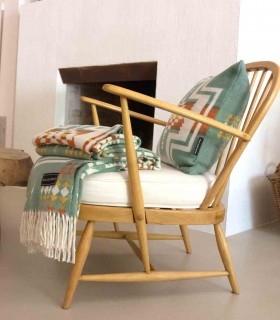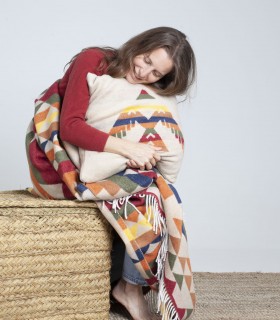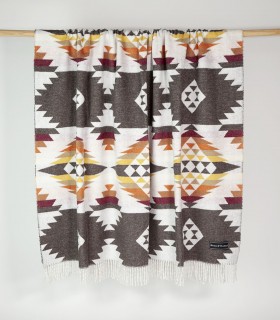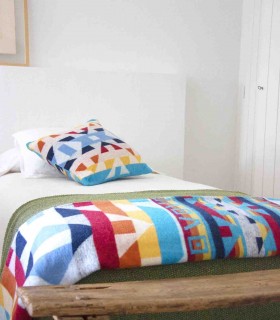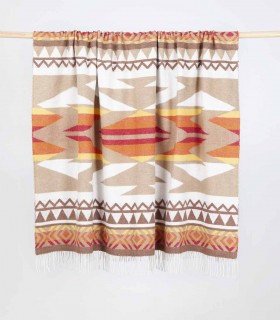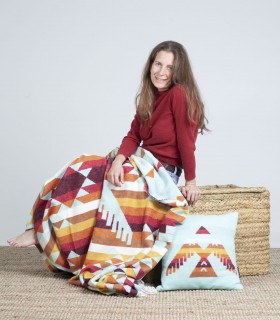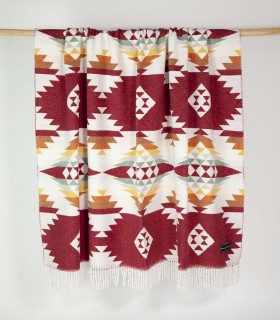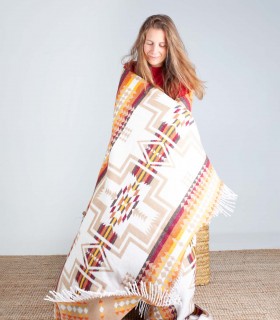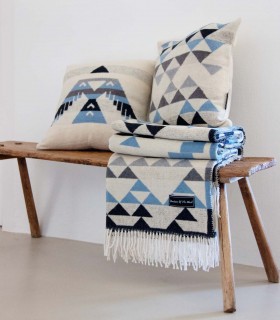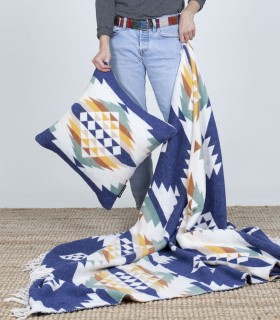Vegan wool: discover the sustainable alternative free of animal cruelty
Surely in recent years you have heard about vegan wool, but do you know what it is? If you have embraced an animal-friendly lifestyle, such as veganism, you may be interested in having clothes in line with it. Discover through this post if those who use this term really are or, perhaps, not so much.
Does vegan wool exist?
Answering this question is not as simple as it might initially seem. To begin with, you need to remember that vegan is understood as any item that excludes elements of animal origin in its production.
Therefore, a vegan wool is one that does not contain any fiber from animals in its composition. It must be a wool made solely from vegetable or synthetic elements.
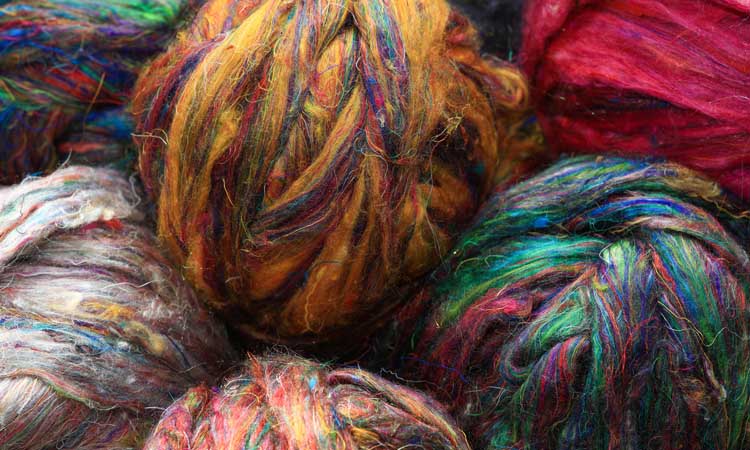
However, the result could not be called wool, since this is a natural fiber that is obtained from some species, especially sheep. For example, sheep, llamas and alpacas. Calling it vegan would be, rather, a license that some brands take to market a product that resembles the authentic one.
In short, up to this point it seems logical to think that vegan wool as such does not exist. But another question arises: what happens to recycled wool? Is it vegan or not?
Do you consider recycled wool a vegan product?
This new question is no less controversial. Some companies turn to recycling wool to obtain new products that are sometimes called vegan. But are they really? Can they receive this qualification despite being based on animal fibers? Would vegans accept them?
Before you answer, it is important that you attend to the two competing arguments:
- There are theories that argue that this type of articles could never enter the philosophy of veganism. Wool has an animal origin, despite its recycling and all the new lives that are given to it. Consequently, recycled wool is ruled out for vegans.
- Other theories, on the contrary, defend the validity of wool and other recycled fabrics for those who choose veganism. They consider that this wool already exists and, therefore, is second-hand wool. It does not directly contribute to the exploitation of animals nor does it generate an economic benefit for those who resort to it.
The debate is served. Which of these positions convinces you the most? Would you use wool that has been recycled in your daily life?
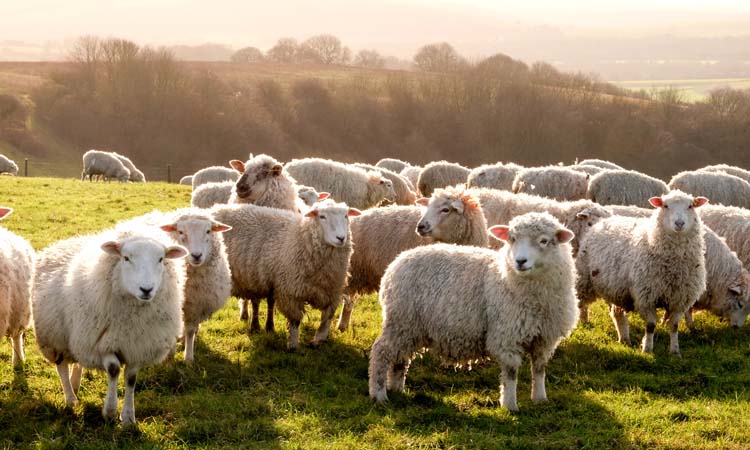
The impact of wool production on animals
Also on this point there are opposing positions. Those who advocate ethical and sustainable wool production are always concerned about animal welfare. For this reason, they do not hesitate to guarantee the best treatment for livestock. They do it in their upbringing, in feeding, when shearing them, etc.
Unfortunately, not all producers opt for these types of practices. There are complaints related to the exploitation of animals, deficiencies in shearing and displacement. It's just an example of the cruelty that surrounds the wool industry.
Environmental benefits of recycled wool
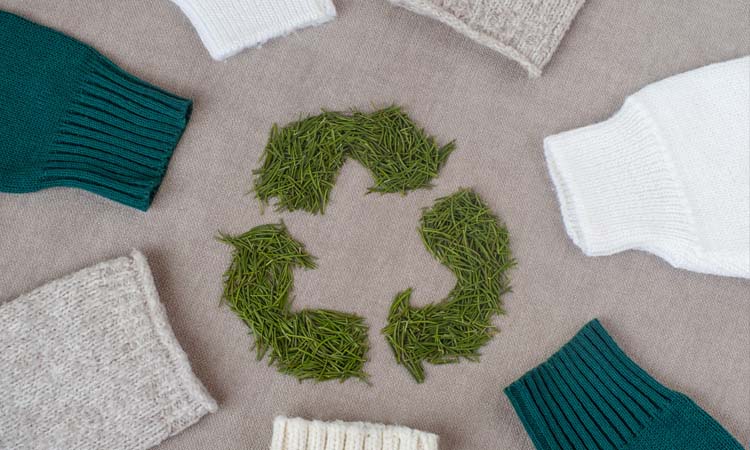
Whether you consider recycled wool to be vegan wool or not, its use translates into several benefits that are worth valuing:
- It does not contribute to animal exploitation or cruel practices, since the raw material is obtained from waste.
- The amount of waste that ends up in landfills or is burned every day is reduced, with the consequent emission of carbon dioxide.
- Saves water and reduces the amount of land used for grazing, thereby reducing the carbon footprint on the planet.
- It contributes to reducing environmental pollution.
- The circular economy is promoted, giving a second life to textiles that are considered waste.
Discover its other advantages, such as those related to circular fashion and decoration.
Alternative to wool blankets: vegan blankets made from recycled cotton
At Blankets of the World we have made a clear commitment to recycling. You can see this by looking at our collection of Thick blankets, in whose manufacture we have used recycled cotton. Thus, you will find different proposals for vegan blankets for winter, extra soft and warm:
Get our 100% recycled products suitable for vegans
You can trust our products without fear of making mistakes since they are all 100% recycled. They are the result of our commitment to the environment. Among them, the Masai blanket stands out, a recycled blanket that is as soft as it is warm and light. Only recycled fibers have been used in its composition.
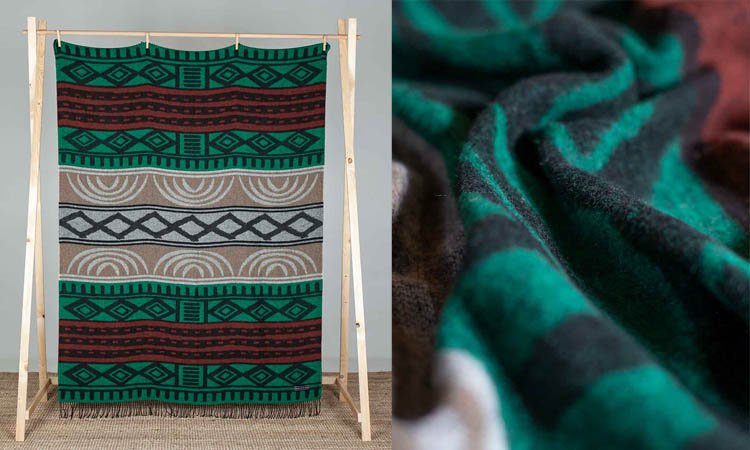
In conclusion, we encourage you to use nature-friendly textiles, such as recycled wool. Our blankets will be the first to conquer your home. They are the most sustainable and ecological option on the market. In addition, their designs and colors make them creations full of attractiveness. Choose your favorite!
















